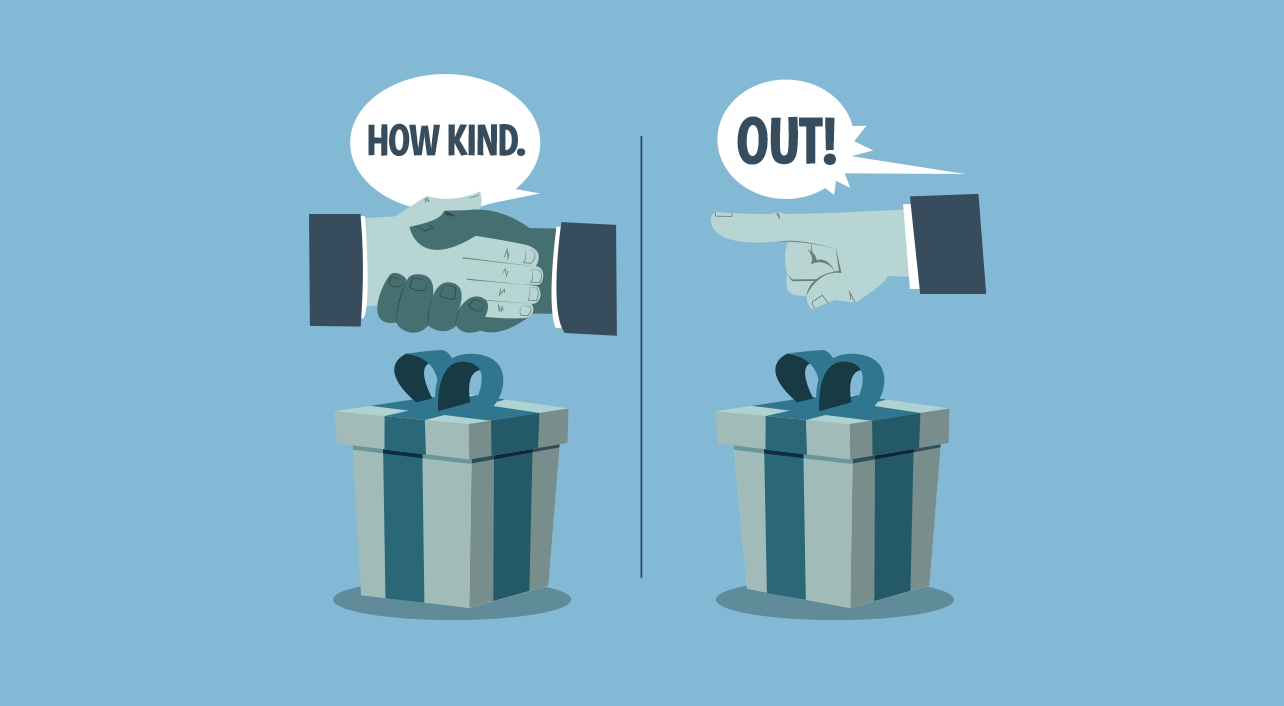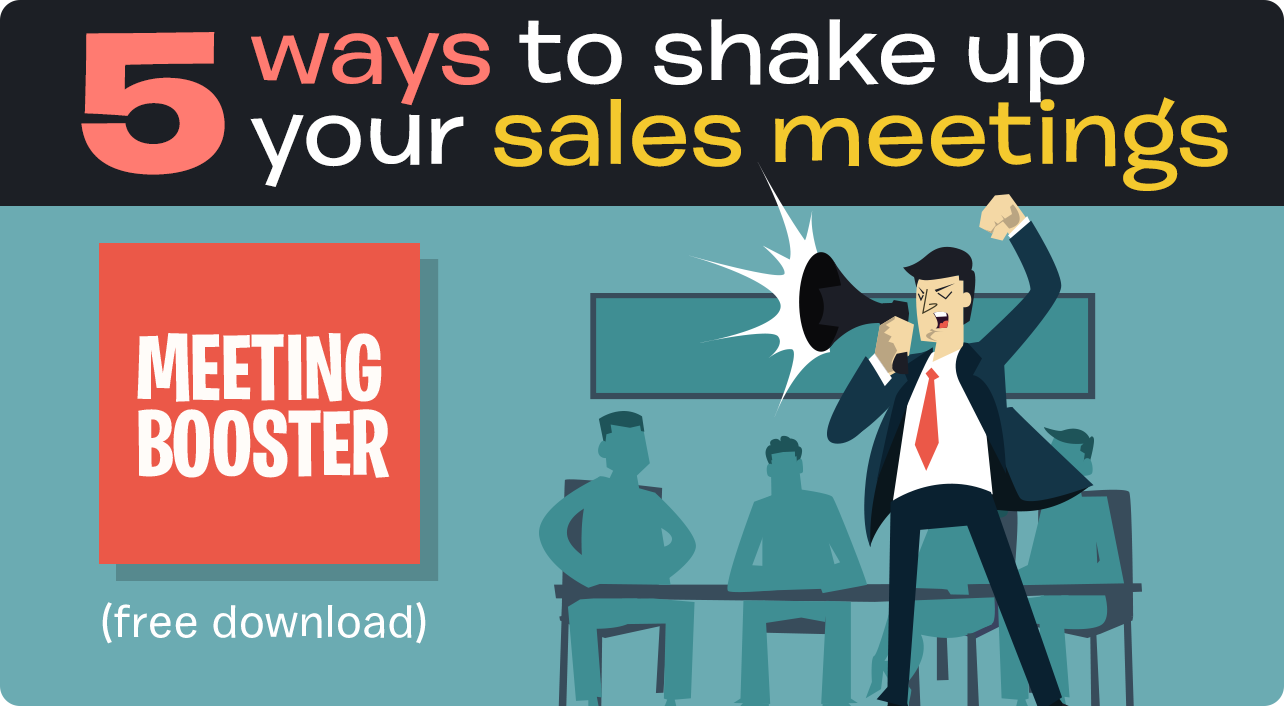- sales
- Blog post
When it’s OK to give a customer a gift – and when it’s not
Every salesperson knows that there are times, like the end-of-year holidays, when you may want to give a good customer a gift, depending on the kind of relationship you have.
But more broadly, what’s the impact of giving gifts to customers or clients, and how is gift giving likely to affect their view of you?
You may wonder things like:
- Will they take it the wrong way?
- Will it help you close a sale or get more business?
- Does it have to be something big and expensive to have an impact?
It’s complicated
According to two studies on the subject, gift giving in sales can get complicated. In some situations gifts are an effective way to build relationships, but in others they can backfire.
You probably know about the psychological principle of reciprocity: If you do something for someone, they feel obliged to return the favor. That’s what makes some salespeople uncomfortable about giving gifts. If the goal is to make buyers feel “obliged” to give you some business, that’s an obvious manipulative trick – one that buyers are likely to resent.
But there’s another type of reciprocity that gift giving triggers—having to do with the relationship, not the sale—and it helps create a win-win for buyers and sellers.
To see what that means, let’s consider those two studies.
Reciprocity kicks in
In one study, researchers looked at the prescribing patterns of several thousand American doctors who had accepted modest lunches from pharmaceutical reps. Even though the lunches cost only between $12 and $18, these doctors were up to twice as likely to prescribe the drugs that the reps were promoting.
Now, this study was conducted in an industry where lavish gifts – for example, an all-expenses-paid trip to a conference in Hawaii — had once been the norm. Conventional wisdom suggested that when you’re trying to influence a high earner like a physician, perks have to be worth a lot of money.
But the doctors saw things differently. They’d be rightfully appalled at the suggestion that they’d write prescriptions in exchange for a sandwich and soda — or even for a trip to Hawaii.
So why, then, did these lunches have such an influence on their behavior?
Because of reciprocity, doctors did feel some obligation to return the rep’s favor – not by writing a prescription, but by giving their time, attention and consideration to what the rep was saying. So in the end, doctors wrote more prescriptions not to pay for their lunch, but simply because they’d become more familiar with the drugs.
New customers are suspicious
A second study, however, suggests that gift giving can have very different outcomes depending on the nature of the sales relationship.
Behavioral economists at two Swiss universities looked at salespeople calling on pharmacists. Some of the salespeople gave their customers a free product sample, which consisted of six tubes of toothpaste worth about $10. Another group of salespeople offered no gift.
In line with the previous study, customers who got the free samples ended up buying about twice as much of the product.
But here’s the twist: That happened only with existing customers. When salespeople were calling on a prospect for the first time, the free samples actually hurt sales.
A ‘thank you,’ or a bribe?
Why? In the absence of a relationship, prospects did see the “gift” as an attempt to buy their business – and at an insultingly low price. But where there already was a relationship, the perception was completely different. The researchers said that “the customer sees the gift as a token of thanks and an indication that the relationship is appreciated.”
So this type of reciprocity isn’t about offering a reward or incentive in exchange for the customer’s business. It’s about advancing the relationship. A modest but thoughtful gift signals to buyers that you’ve listened to them and understand what they care about. Doctors are busy people who often don’t have time to run out and buy lunch. And pharmacists would like to try out a new kind of toothpaste before recommending it to their customers.
When your gift shows that you understand the buyer’s world, they reciprocate by giving you more time and attention. Which is why it’s not about the size of the gift – it really is the thought that counts.
This blog entry is adapted from the Rapid Learning module “What Science Says About Giving Gifts to Buyers.” If you’re a Rapid Learning customer, you can watch the video here. If you’re not, but would like to see this video (or any of our other programs), request a demo and we’ll get you access.
The blog post and Rapid Learning video module are based in part on the following scholarly articles:
DeJong, C., et al. (2016). Pharmaceutical industry–sponsored meals and physician prescribing patterns for Medicare beneficiaries. JAMA internal medicine, 176(8), 1114-1122.
Maréchal, M. A., & Thöni, C. (2019). Hidden persuaders: do small gifts lubricate business negotiations? Management Science, 65(8), 3877-3888.

Get a demo of all our training features
Connect with an expert for a one-on-one demonstration of how BTS Total Access can help develop your team.



